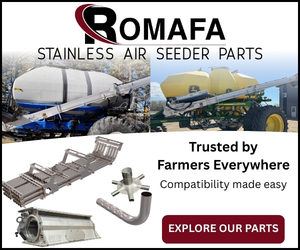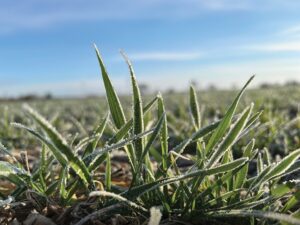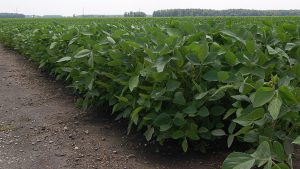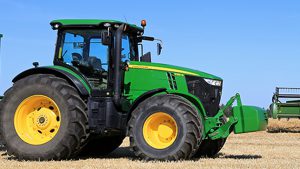Flying safe and legal
NEW DRONE RULES IN EFFECT JUNE 1
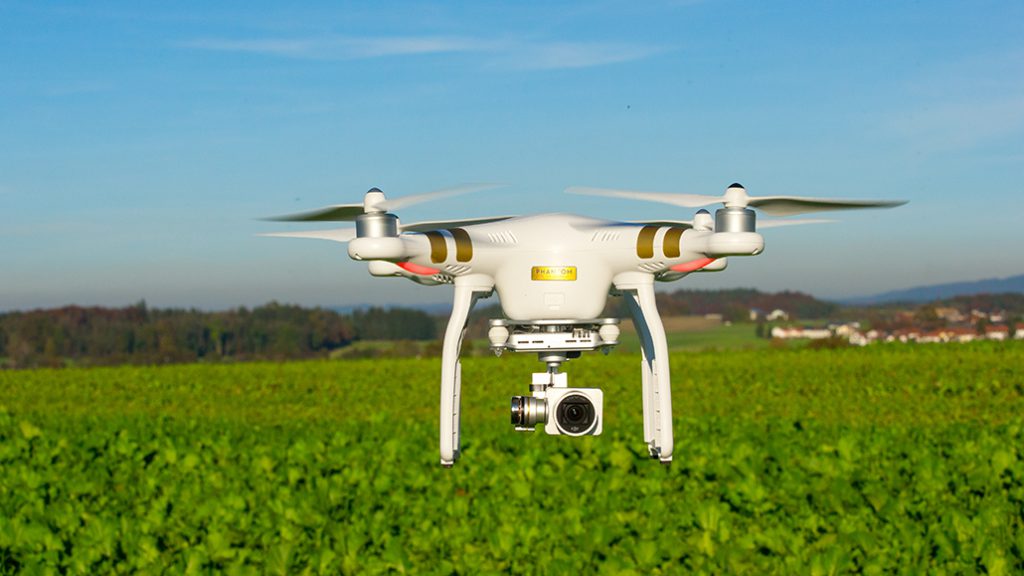
NEW DRONE RULES from Transport Canada are coming into effect June 1, 2019. Up until now, the last major regulation change took place in 1996, with minor changes since then.
The new rules apply to those operating Remotely Piloted Aircraft Systems (RPAS), or ‘drones’, that weigh 250 grams up to and including 25 kilograms and are operated within the drone pilot’s visual-line-of-sight. Any drones that fit this weight category must now be registered with Transport Canada and pilots must mark their drones with their registration number prior to flying it. The cost of registration is only $5.
If your drone is over 25kg, then it doesn’t need to be registered; but, a Special Flight Operations Certificate (SFOC) from Transport Canada is required. If you choose to fly an unregistered drone, you may be fined $1,000 for a person, or $5,000 for a corporation.
According to Felix Weber, president and founder of Ag Business and Crop Inc. who was involved with Transport Canada to create the new rules, “Transport Canada wants the air to be safe, so they are going to be very strict. It’s the same as not stopping at a stop sign with your vehicle, you are breaking the law. With a drone, if you don’t follow the rules you can cause issues in the air, as well as on the ground if something were to happen. Rules will be enforced by Transport Canada officials, RCMP, and OPP.”
CATEGORIES
There are now two categories of drone operations; basic operations and advanced operations. If you fly your RPAS in uncontrolled airspace, fly it more than 30 metres (100 feet) horizontally from bystanders, and never fly it over bystanders you meet the basic operations criteria. For basic operations, you must register your drone, mark your drone with the registration number, pass a basic exam, and be able to show proof of drone registration and your basic operations pilot certificate when you fly.
If you do not meet any one of the three basic operations criteria, you then fit into advanced operations. For advanced operations, you must register and mark your drone, pass the advanced exam, pass a flight review with a flight reviewer, be able to show your advance certificate and proof of registration when flying your drone, and be sure to fly within the operational limits of your drone defined in the RPAS Safety Assurance that its manufacturer declared to Transport Canada.
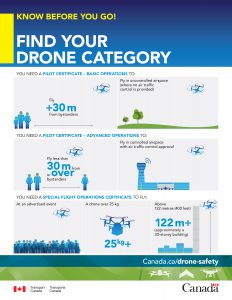
FARM ADVICE
Norm Lamothe, head of UAS Agriculture, grain farmer, and a licensed fixed-wing aircraft pilot, knows the risks that drone technology can pose to manned aviation in the skies. “The new rules essentially require anyone looking to operate a drone to have some extensive understanding of aviation, drone performance capabilities, and the ability to interpret weather. These will require a formal ground school to learn all the areas of knowledge required to pass the new written Transport Canada exams. Without this knowledge base, it would be difficult to comply with the new rules,” says Lamothe. “Although some rules have been lightened, other rules are placing emphasis on a checks and balances approach to educating anyone wanting to use a drone. This includes a written licensing program based on your area of operations. Farmer’s must be aware that there are rules which must be followed with operating a drone — period.”
The Government of Canada website (www.tc.gc.ca/en/services/aviation/drone-safety/flying-drone-safely-legally.html) is where you can see the most up to date drone regulations taking effect on June 1. Until this date, be sure to follow the current rules and understand that the new drone regulations could still see some changes. You are also still responsible to follow all other regulations not mentioned in the Canadian Aviation Regulations (those not controlled by Transport Canada) such as the privacy act, trespassing act, criminal code, and other applicable laws.
Laura Ferrier is the agronomist for Grain Farmers of Ontario. •


